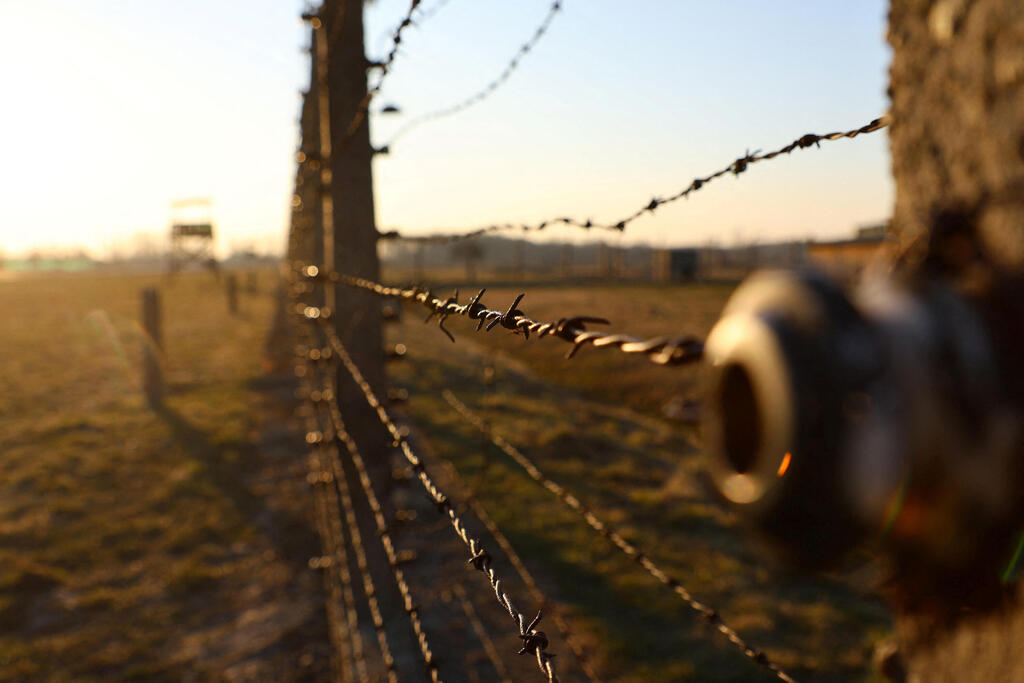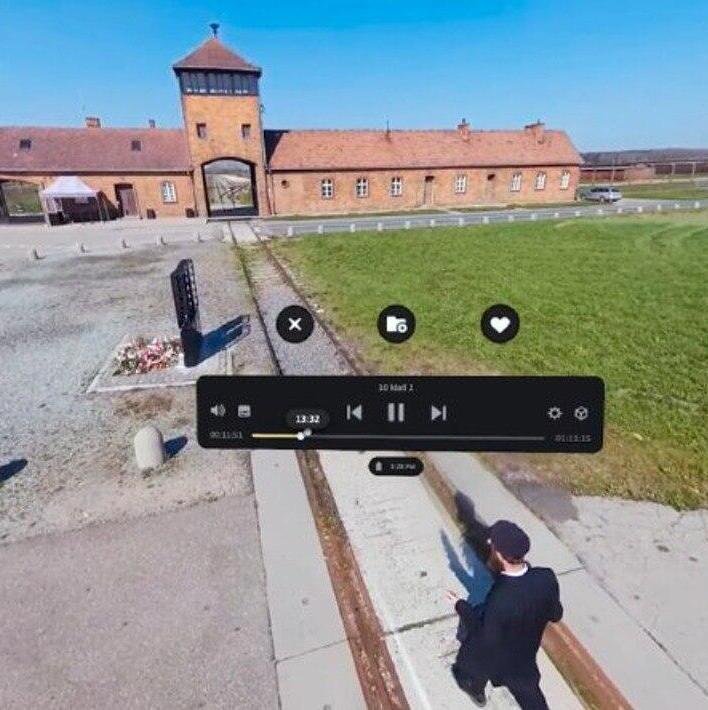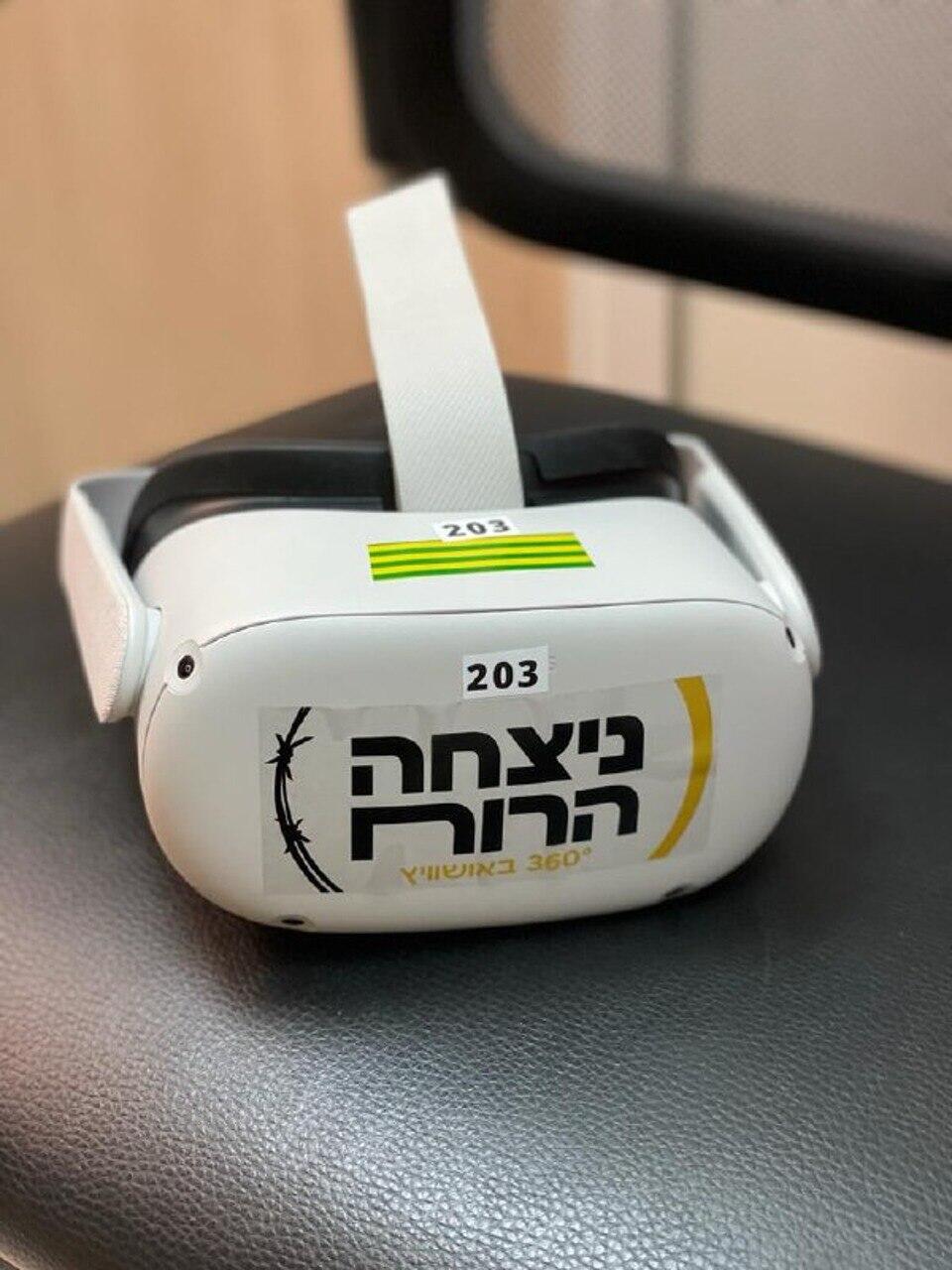Three Jewish women, belonging to ultra-orthodox stream, have pioneered a project offering remote virtual tours of Auschwitz.
Miriam Cohen, Hani Kopolovitz, and Yoti Neiman felt the Haredi community was lacking of the Jewish expeditions to holocaust sites in Poland often incorporated into the educational curriculum of many Israeli schools.
"The project was born out of our deep lacking," explained Cohen, the project leader, in an interview with Ynet. "We didn't go on the Poland trip, because the Haredi education system doesn't do these trips. Four years ago we ran into the VR [Virtual Reality] technology, and we wanted to bring the trip to all the thousands that can't go."
The technology attempts to illustrate the place that acted as a symbol of the atrocities faced by Jews during World War II, to all those who cannot or do not want to physically go to Poland.
The project is called "The victory of the spirit- 360 degrees in Auschwitz", and it offers a unique video tour lasting over an hour through a 360 degree camera and VR glasses. Throughout the guided tour, the participants are able to see artifacts such as the barbed wire, brick barracks, and bunkbeds in the camp, as well as hear Holocaust survivors who tell their stories.
Cohen and her partners, Haredi theatre creators, said that they attempted to create "an intensive and multi-sensory experience, as close to the real trip as possible."
The COVID pandemic offered prime conditions for the footage needed for this project. Despite the lockdowns, the Auschwitz memorial cite agreed to open their doors for the sake of this project. Because there were many consecutive days in which the concentration camps were nearly empty, the project team could wander the cite freely and photograph without disturbances.
"Auschwitz was closed for visitors for over a year," Cohen recalls. "It was a miracle that we succeeded to reach the manager through the website directorate. She spoke Polish and French, and I was born in Canada and speak French, so I talked to her and won her over. It was really a miracle, she approved that we come to the camp and photograph there for three days. We were allowed to enter the most secret rooms that no one is allowed access to."
3 View gallery


Barbed wire fence is pictured at site of the former Nazi German concentration and extermination camp Auschwitz II-Birkenau, in Brzezinka near Oswiecim, Poland, March 13, 2022
(Photo: Reuters)
"Our dream is that there won't be one Jew that hasn't visited in Auschwitz-Birkenau - physically or virtually," the three women said. "We didn't come to replace the physical trip, we came just to make the experience accessible to those who can't go - and in order to encourage the young generation to ask questions, engage, explore, and never forget what happened 80 years ago."
According to Cohen, the virtual experience is recommended for ages 16 and up. "I personally don't think that it replaces the trip, but whoever hasn't gone, in my opinion, must see it, because it really is as close as it gets to the real thing," she says.
The tour can be ordered through the project website for groups of at least 15 participants. During the virtual tour, tour guide Israel Goldwasser tells of the moral dilemmas, the hardships, and the moments in which the Jewish spirit overcame them.
"I recently met a Holocaust survivor who saw the movie, and she asked me to promise her that I do everything for this movie to reach as many people as possible," Miriam shared. Miriam says that she is now doing everything she can to keep her promise to the brave woman.



